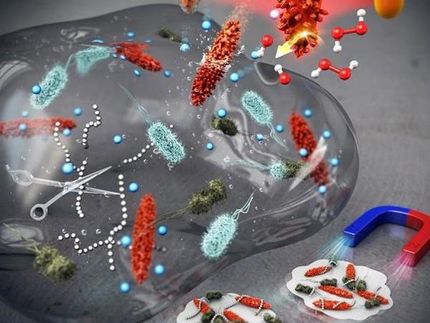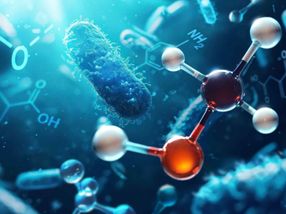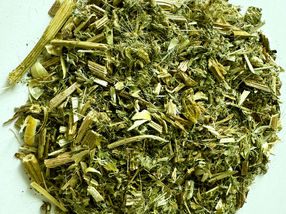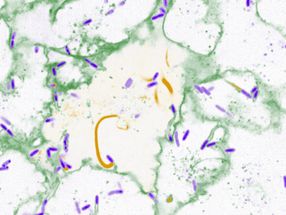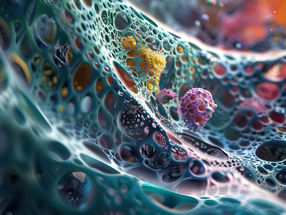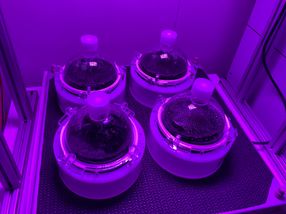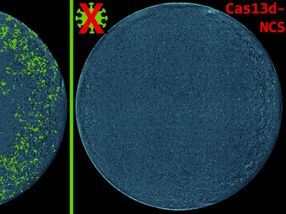Novel therapeutics recognize sugar coat of the hospital germ C. difficile
Now, scientists at the Max Planck Institute of Colloids and Interfaces in Potsdam have demonstrated that C. difficile bacteria can be recognized by specific sugars on their surface. Antibodies that attack the sugars can be used to treat infected animals and save their lives. The bacterium Clostridium difficile invades up to 40% of patients in hospitals, causes serious infections that require harsh treatment with antibiotics and kills about 15.000 people in Europe annually. The results reported recently in the journal Nature Communications are the basis for further clinical development.
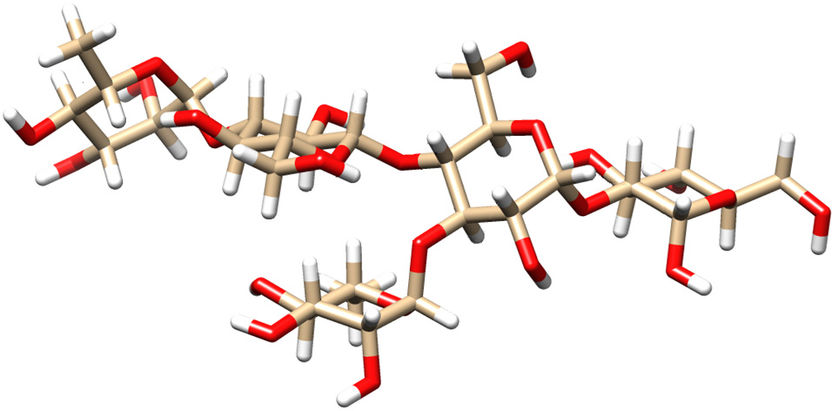
Sweet target of therapeutic antibodies: the sugar molecule „PS-I“ of C. difficile is shown in its three-dimensional shape (orange: carbon; red: oxygen; white: hydrogen). The PS-I molecule consists of five sugar building blocks. Each building block is based on a ring of five carbons and one oxygen, carbons are further modified. Chemical synthesis enabled the study of this sugar that is now basis for novel antibacterial therapeutics.
© MPI of Colloids and Interfaces
Hospital-acquired infections are a rapidly increasing problem in industrialized countries as more antibiotic-resistant bacteria evolve. The anaerobic bacterium Clostridium difficile has emerged as a major cause of disease in hospitals and long-term care facilities where up to 40% of inpatients are infected. The bacterium blooms in the gut when protective bacteria are diminished by antibiotics. Symptoms include diarrhea, dehydration, intestinal inflammation and death in severe cases. As antibiotic resistance continues to rise, novel therapies are needed urgently. In the US alone, over 250.000 C. difficile infections annually are responsible for at least 15.000 deaths and medical expenses of over one billion dollars.
Researchers at the Max Planck Institute of Colloids and Interfaces now report monoclonal antibodies against the sugars on the surface of C. difficile as a novel antibacterial therapy. Chemically synthesized sugars that resemble those covering the bacterium were used to generate monoclonal antibodies that specifically recognize and kill any pathogen carrying the motif. Since the sugar motif called PS-I is found on a wide range of C. difficile strains, the novel therapeutic is expected to be very broadly applicable. Another advantage is that other bacteria of the gut remain intact and lower the likelihood of re-infection by C. difficile that is a common result of antibiotic treatment.
The results are the basis for ongoing efforts to develop novel therapeutics. “This is a great example how basic research on fundamental aspects of the human immune response results in therapeutic candidates that will help fight one of the most devastating hospital-acquired infections” says Prof. Peter Seeberger, the senior author of the study.
The team at the Max Planck Institute of Colloids and Interfaces in Potsdam continues to work with Vaxxilon AG (Reinach, Switzerland) to advance novel carbohydrate vaccines. Vaxxilon has licensed certain intellectual property rights to a portfolio of vaccine candidates targeting multiple infectious agents, including C. difficile.
Original publication
Other news from the department science
Most read news
More news from our other portals
See the theme worlds for related content
Topic world Antibodies
Antibodies are specialized molecules of our immune system that can specifically recognize and neutralize pathogens or foreign substances. Antibody research in biotech and pharma has recognized this natural defense potential and is working intensively to make it therapeutically useful. From monoclonal antibodies used against cancer or autoimmune diseases to antibody-drug conjugates that specifically transport drugs to disease cells - the possibilities are enormous

Topic world Antibodies
Antibodies are specialized molecules of our immune system that can specifically recognize and neutralize pathogens or foreign substances. Antibody research in biotech and pharma has recognized this natural defense potential and is working intensively to make it therapeutically useful. From monoclonal antibodies used against cancer or autoimmune diseases to antibody-drug conjugates that specifically transport drugs to disease cells - the possibilities are enormous
